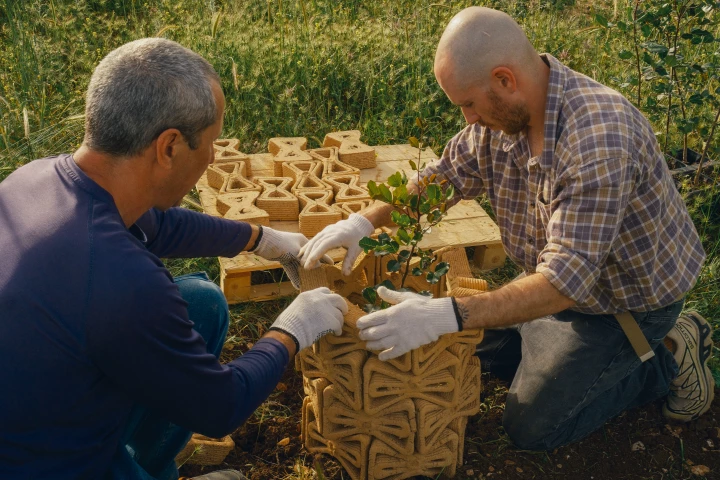Agricultural
-
A new project called TreeSoil is reimagining how architecture can support vulnerable environments. It proposes a small but radical idea: build structures not for people, but to protect saplings struggling to survive in degraded landscapes.
-
Scientists at the University of Texas at Austin have developed a “smart soil” that can keep plants better hydrated and provide a controlled release of nutrients. In tests it drastically improved crop growth while using far less water.
-
The fertilizer used on around half of the food we consume is now one of the biggest drivers of human-made greenhouse gas emissions, with China, India, the US, Brazil and Russia the biggest polluters, according to a new global nitrous oxide report.
-
Mowing might seem like a pretty sensible way to keep weeds at bay. But in the case of the silverleaf nightshade, the activity puts the plant into survival mode causing it to fight back with some pretty powerful defense mechanisms, says a new study.
-
The first Martian colonists will need to figure out how to grow their own food locally, but the soil is less than ideal. A new study has shown that dosing plants with symbiotic bacteria can drastically improve their growth in barren Mars-like soil.
-
Agriculture requires huge amounts of land and resources, and as the human population grows our food supply will be put under increasing stress. But a new study shows that farming protein from microbes could be a far more sustainable and efficient system.
-
Cattle are a major source of greenhouse gas emissions, mainly due to their methane-loaded burps. A detailed new study has found more evidence that feeding cows a small seaweed supplement can greatly reduce their methane emissions.
-
When it comes to targets for autonomous machinery, those carrying out repetitive tasks on farmland are ripe for the picking. The newly introduced Monarch Tractor is designed to show how it’s done, packing an all-electric powertrain and machine learning.
-
As tasty as cows are, their greenhouse gas emissions aren’t quite so palatable. To help clean up the agriculture industry, Burger King has now announced it will start feeding its cows a new diet that can cut methane emissions by as much as a third.
-
Tomatoes are certainly hardy plants – this is partly due to a compound which they emit, known as hexenyl butyrate (HB). Spanish scientists have now found that a spray of synthetic HB helps various crop plants to withstand both drought and bacterial infections.
-
They’re almost cute, these little seatless quadbikes, and they can be programmed to perform a bunch of handy tasks outdoors. Honda has been testing them in search and rescue, firefighting, construction, agriculture, landscaping and snow removal applications.
-
A new international study into the impact of agricultural land use on climate change has found organic food production is worse for the climate than conventional farming, due to the fact that it needs greater areas of land to grow produce.
Load More











